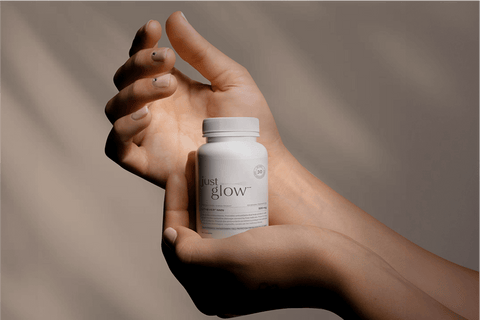Are NMN Supplements Safe To Take During Pregnancy?

Supplements like Nicotinamide mononucleotide (NMN) have become increasingly popular for their potential anti-aging and energy-boosting properties. However, for expecting mothers, the safety of NMN during pregnancy remains an important and unresolved question. This article explores the potential benefits, risks, and considerations surrounding NMN supplementation during pregnancy and breastfeeding.

What is NMN?
NMN is a compound that naturally occurs in the body and plays a crucial role in energy metabolism, DNA repair, and various cellular processes by increasing levels of NAD+ (Nicotinamide adenine dinucleotide). NMN supplements are often promoted for their anti-aging and energy-enhancing effects in non-pregnant adults. However, whether these benefits extend to pregnancy is still unclear.
Should You Be Taking NMN During Pregnancy?
It's always great to prioritize your health and well-being, especially during pregnancy! While NMN (nicotinamide mononucleotide) is being explored for its potential anti-aging and health benefits, it's important to remember that pregnancy is a unique time when your body has specific needs. Currently, there's limited research on the effects of NMN during pregnancy, so the best step is to consult your healthcare provider. They can guide you toward the safest and most beneficial options for you and your baby, ensuring that you both thrive during this special journey. You're doing amazing by being proactive about your health!
Remember, taking the right steps to ensure a healthy pregnancy is a beautiful act of self-care for both you and your baby!

Potential Benefits of NMN During Pregnancy
Despite the uncertainties, some potential benefits of NMN during pregnancy can be speculated:
- Enhanced Energy: Pregnancy increases energy demands, and NMN’s role in boosting NAD+ levels could help pregnant women manage fatigue and maintain energy throughout the pregnancy.
- Cellular Repair and Regeneration: NMN supports cellular repair and regeneration, which may aid in the healthy development of the fetus and overall maternal well-being.
- Anti-inflammatory Properties: NMN has been shown to have anti-inflammatory effects, which could benefit pregnant women by reducing inflammation that may contribute to pregnancy complications.
Potential Risks of NMN During Pregnancy
The most significant concern surrounding NMN supplementation during pregnancy is the lack of comprehensive human studies. With little data on how NMN impacts fetal development, several potential risks arise:
- Insufficient Research on Safety: Without thorough studies, the full effects of NMN supplementation on pregnant women and their babies are unknown. While animal studies offer some insight, their findings cannot be directly applied to humans.
- Possible Side Effects: NMN supplements may cause side effects in non-pregnant individuals, such as nausea and digestive issues. These side effects could be more pronounced during pregnancy, when a woman's body is undergoing significant changes.
- Crossing the Placental Barrier: There is concern that NMN, like many substances, could cross the placental barrier and affect the developing fetus. Without clear evidence, it’s difficult to determine whether this could pose a risk to the baby.
- Interaction with Other Medications: Many pregnant women take prescribed medications for pregnancy-related conditions. NMN might interact with these medications, leading to unforeseen complications or reducing the effectiveness of essential treatments.
Considerations for Breastfeeding Mothers
Breastfeeding mothers face similar concerns when considering NMN supplementation. As with pregnancy, there is limited research on NMN’s safety for nursing infants. While NMN could theoretically provide energy and health benefits for the mother, it is unclear whether it could pass into breast milk and affect the infant. Without sufficient studies to confirm its safety, it’s recommended that breastfeeding mothers avoid NMN supplementation unless advised by a healthcare provider.

Alternative Strategies for Maternal Health
If you are looking for ways to support your health during pregnancy without the uncertainties of NMN, several safe and well-researched alternatives are available:
- Prenatal Vitamins: A high-quality prenatal vitamin that includes essential nutrients such as folic acid, iron, calcium, and DHA (an omega-3 fatty acid) is a trusted way to support maternal and fetal health. These nutrients have been thoroughly studied and are widely recommended by healthcare providers.
- Balanced Diet: A nutrient-rich diet is one of the best ways to ensure that both mother and baby receive the necessary vitamins and minerals. Focus on including plenty of fruits, vegetables, whole grains, lean protein, and healthy fats. Specific foods such as leafy greens, dairy products, and fatty fish are excellent sources of critical nutrients like calcium and omega-3s.
- Regular Exercise: Engaging in light to moderate exercise, such as walking or prenatal yoga, can help maintain energy levels, improve mood, and support overall pregnancy health. Physical activity also promotes good circulation and may reduce the risk of pregnancy-related complications.
- Adequate Hydration: Staying hydrated is essential for supporting overall health during pregnancy. Proper hydration helps with digestion, circulation, and nutrient delivery to the developing baby.
- Mindful Stress Management: Techniques such as meditation, deep breathing, and mindfulness can help reduce stress, which is important for both maternal and fetal well-being. High stress levels during pregnancy can contribute to complications, so finding effective ways to manage stress is key.
Exploring Emerging Research
While current data on NMN supplementation during pregnancy is limited, ongoing research may provide more insights in the future. Some preliminary studies in animals suggest that NMN could support reproductive health and cellular function in older adults, but translating these results to pregnant women requires more thorough investigation. As science continues to explore NMN’s role in aging, energy metabolism, and cellular repair, future studies may better clarify its effects on pregnancy and fetal development.
The Importance of Consulting Healthcare Providers
Ultimately, the decision to take NMN or any other supplement during pregnancy or breastfeeding should not be made without professional guidance. Every pregnancy is different, and a healthcare provider can offer personalized advice based on your health history, existing medications, and nutritional needs. This tailored approach ensures both you and your baby receive the safest and most effective care during pregnancy and beyond.
Conclusion
While NMN supplements show potential benefits like enhanced energy and cellular repair, their safety during pregnancy and breastfeeding remains uncertain due to limited research. Given the lack of human studies and the possibility of unknown risks, it is advisable for pregnant and breastfeeding women to avoid NMN unless specifically recommended by a healthcare provider. Proven alternatives like prenatal vitamins, a nutrient-rich diet, regular exercise, and stress management offer safe and effective ways to support maternal health. Consulting with a healthcare professional is crucial before making any decisions about supplementation during these critical periods, ensuring both mother and baby are protected.
FAQs
-
Can I take NMN supplements during pregnancy?
It’s generally recommended to avoid NMN supplements during pregnancy due to limited research on their safety. Consult your healthcare provider for advice. -
What are the potential benefits of NMN during pregnancy?
NMN may theoretically boost energy, support cellular repair, and reduce inflammation, but these benefits are not well-studied in pregnant women. -
Are there risks to taking NMN while pregnant?
Yes, potential risks include unknown effects on fetal development, side effects like nausea, and interactions with other medications. -
Is NMN safe to take while breastfeeding?
The safety of NMN during breastfeeding is unclear, as it may pass through breast milk. It’s best to consult your doctor before use. -
What are safer alternatives to NMN for maternal health?
Proven alternatives include prenatal vitamins, a balanced diet, regular exercise, and stress management techniques to support maternal well-being.

 コンテンツにスキップ
コンテンツにスキップ



